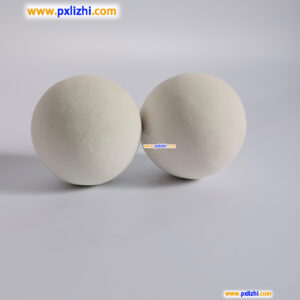
# Inert Ceramic Ball Applications in Industrial Processes
## Introduction to Inert Ceramic Balls
Inert ceramic balls are high-performance ceramic spheres widely used in various industrial applications. These small but mighty components play crucial roles in chemical processing, petrochemical refining, and other industrial operations where chemical inertness and thermal stability are paramount.
## Key Properties of Inert Ceramic Balls
Inert ceramic balls possess several exceptional characteristics that make them indispensable in industrial settings:
- Excellent chemical resistance to acids, alkalis, and organic solvents
- High thermal stability withstanding temperatures up to 1600°C
- Superior mechanical strength and wear resistance
- Low water absorption and porosity
- Uniform size distribution and spherical shape
## Major Industrial Applications
1. Catalyst Support in Chemical Reactors
Inert ceramic balls serve as excellent catalyst supports in fixed-bed reactors. Their high surface area and thermal stability provide optimal conditions for catalytic reactions while preventing catalyst degradation.
2. Packing Material in Distillation Columns
These ceramic spheres are extensively used as tower packing in distillation and absorption columns. Their uniform shape promotes efficient vapor-liquid contact while minimizing pressure drop across the column.
3. Heat Exchange Media
In high-temperature processes, inert ceramic balls function as heat exchange media in regenerative heat exchangers. Their thermal stability allows for efficient heat transfer in demanding environments.
4. Gas Distribution Systems
Industrial gas processing plants utilize inert ceramic balls in gas distribution systems to ensure uniform flow patterns and prevent channeling in packed beds.
## Advantages Over Alternative Materials
Compared to metal or plastic alternatives, inert ceramic balls offer distinct advantages:
| Property | Ceramic Balls | Metal Balls | Plastic Balls |
|---|---|---|---|
| Chemical Resistance | Excellent | Good | Fair to Poor |
| Temperature Range | Up to 1600°C | Up to 800°C | Up to 200°C |
| Mechanical Strength | High | High | Low |
| Cost | Moderate | High | Low |
## Selection Criteria for Industrial Use
When selecting inert ceramic balls for industrial processes, consider these factors:
- Chemical compatibility with process media
- Operating temperature range requirements
- Pressure conditions in the system
- Size specifications for optimal performance
- Load requirements and mechanical stress
## Maintenance and Longevity
Proper maintenance ensures maximum service life of inert ceramic balls in industrial applications:
- Regular inspection for cracks or chips
- Periodic cleaning to remove deposits
- Proper handling to prevent mechanical damage
- Monitoring for signs of chemical degradation
## Future Trends in Ceramic Ball Technology
Advanced Material Compositions
Researchers are developing new ceramic formulations with enhanced properties, including higher thermal shock resistance and improved mechanical strength.